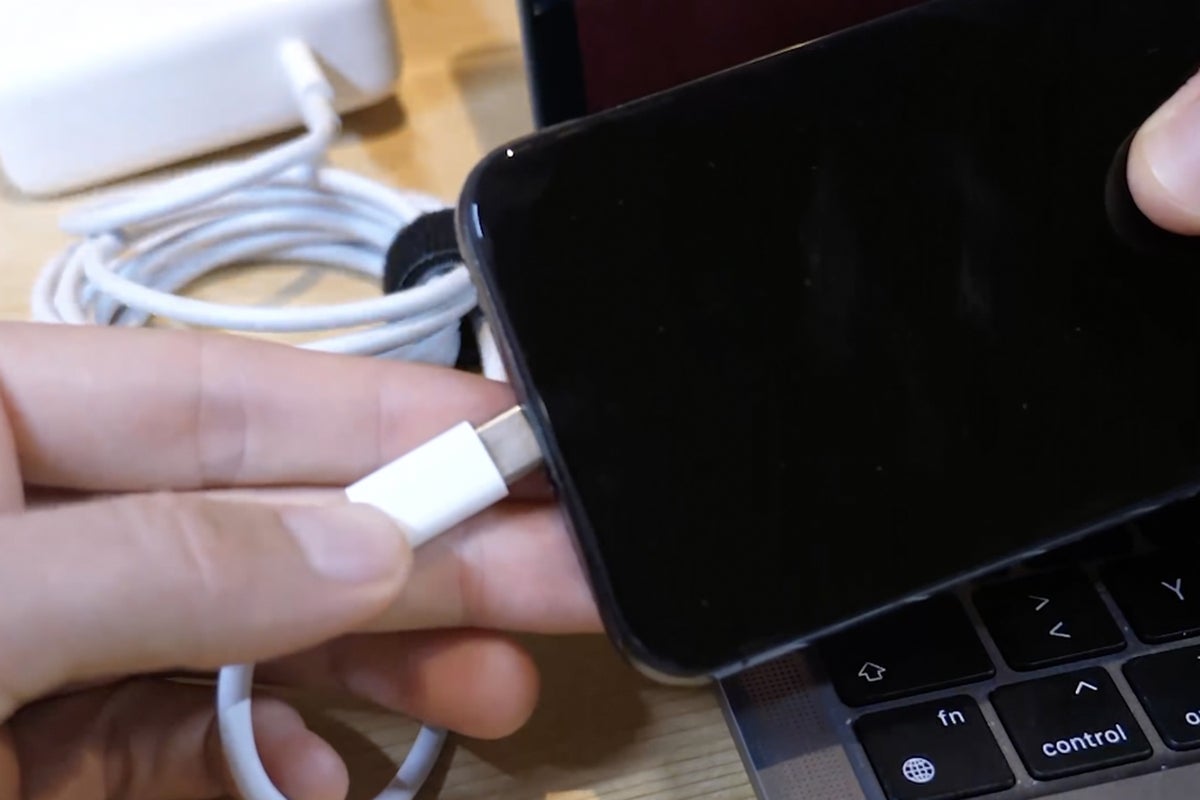































The European Union (EU) this week announced it will require makers of most consumer electronic devices adopt the USB Type-C charging standard by fall 2024.
The unprecedented mandate is widely expected to affect Apple, whose products - including the popular iPhone series - use the company's proprietary Lightning connector protocol. The move means iPhones and AirPods sold in the EU will be required to switch to the more ubiquitous USB-C ports and cable connectors.
The regulation also requires that devices be clearly labeled to identify their charging and data transfer capacities and addresses the "inconvenience faced by the consumers that are not capable of charging their device because there is no compatible charger at their disposal.
"Buyers will also be able to choose whether they want to purchase new electronic equipment with or without a charging device," the European Parliament said in a statement.

The ability for a consumer to buy a device with or without a cable could save users money in the short run, but it could also give Apple the same choice: to not ship chargers and cables with its devices, according to Ryan Reith, vice president of Worldwide Mobile Device Trackers at research firm IDC
It also doesn't mean Apple will migrate all of its devices over to USB-C worldwide, though some analysts and industry watchers believe Apple is preparing to do just that.
"Apple makes a lot of money on [proprietary] accessories, and so do its partners who make Lightning cables," Reith said. "So I don't think this directive means they'll migrate their whole portfolio over to USB-C right out of the gate - not unless they're forced to."
Jack Gold, principal analyst at J. Gold Associates, said he expects Apple may drag its feet in bringing USB-C to the iPhone and AirPods in US market.
"It will depend on whether or not it sees having two connectors as less advantageous from a manufacturing point of view than the increased revenues maintaining it might provide," Gold said. "But ultimately I suspect they will transition all of their products to the USB-C connector. And that will be a good thing for consumers in my opinion."
The directive from the European Parliament's Committee on Internal Market and Consumer Protection applies to all "small and medium-sized" portable electronic devices. That includes mobile phones, tablets, e-readers, earbuds, digital cameras, headphones and headsets, hand-held videogame consoles and portable speakers that are rechargeable via a wired cable.
Laptops will also have to be adapted to the requirements within 40 months after the entry into force, the committee said.
"Today, we have made the common charger a reality in Europe!" Parliament's rapporteur Alex Agius Saliba said in a statement. "European consumers were frustrated long with multiple chargers piling up with every new device. Now they will be able to use a single charger for all their portable electronics."
The EU committee also added provisions on wireless charging as "the next evolution in the charging technology and improved information and labelling for consumers."
Apple did not respond to a request for comment, but the company has already been working on creating USB-C mobile devices, according to Reith.
"There have been iPads that have been USB-C compatible for a couple years. They didn't need to move their iPad line over to USB-C. They knew this was coming," Reith said.
Apple analyst Ming-Chi Kuo believes Apple's iPhone 15 will include USB-C compatibility when it launches in the second half of 2023. The iPhone 14 line-up, expected in September, is almost certain to continue using a Lightning connector.
 Twitter
Twitter The EU's directive seeks to bring tech transparency to consumers who will get clear information on the charging characteristics of new devices, making it easier for them to see whether their existing chargers are compatible.
For example, the quality and capability of USB-C chargers differ greatly, depending on the manufacturer. Some aftermarket cable makers, such as those in China, claim to be able to provide users with an all-in-one USB-C, Micro USB-C and Lightning cable. In reality, those products don't support fast charging capabilities.
"These Chinese companies label these chargers as something they really aren't," Reith said. "A perfect example: go onto Amazon and buy one of those chargers for$5 and try plugging any of those into your charger and watch how slowly it charges."
The new rule will also reduce electronic waste, the EU Parliament argued, because it will lead to more re-use of chargers for various devices. And it could help consumers save up to$268 mllion a year on unnecessary charger purchases.
"Disposed of and unused chargers are estimated to represent about 11,000 [tons] of e-waste annually," the committee said.
USB-C is able to support USB4, the latest and fastest USB specification, allowing data transfer speeds of up to 40Gbps. By comparison, Lightning transfers data at USB 2.0 rates of 480Mbps. USB-C is supported by most modern devices, including Android phones, Windows PCs, PlayStation 5, and Xbox Series X, as well as being used by the iPad Pro (3rd generation and later).
The latest version of USB-C offers native power support for 100W/3A and up to 240W/5A; it also supports USB Power Delivery for fast charging. By comparison, Lightning has native power support for 12W/2.4A.
Fast charging requires USB-C to Lightning cable and 20W or higher power adapter, according to Lifewire.
For the most part, Apple's use of proprietary connectors has been more about Apple control of peripherals than about the need to be more innovative, according to Gold.
"I'm sure Apple would prefer to stay on its proprietary connector rather than standardize on USB-C," he said. "Apple makes a lot of revenue on its Lightening connector peripherals, as well as licensing fees from third parties. But from the consumer point of view, why do I need a special connector for my iPhone when every other electronic device I have can use any USB-C connector?"
 Tags chauds:
La pomme
l’ios
Gestion Mobile d’entreprise
Tags chauds:
La pomme
l’ios
Gestion Mobile d’entreprise